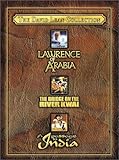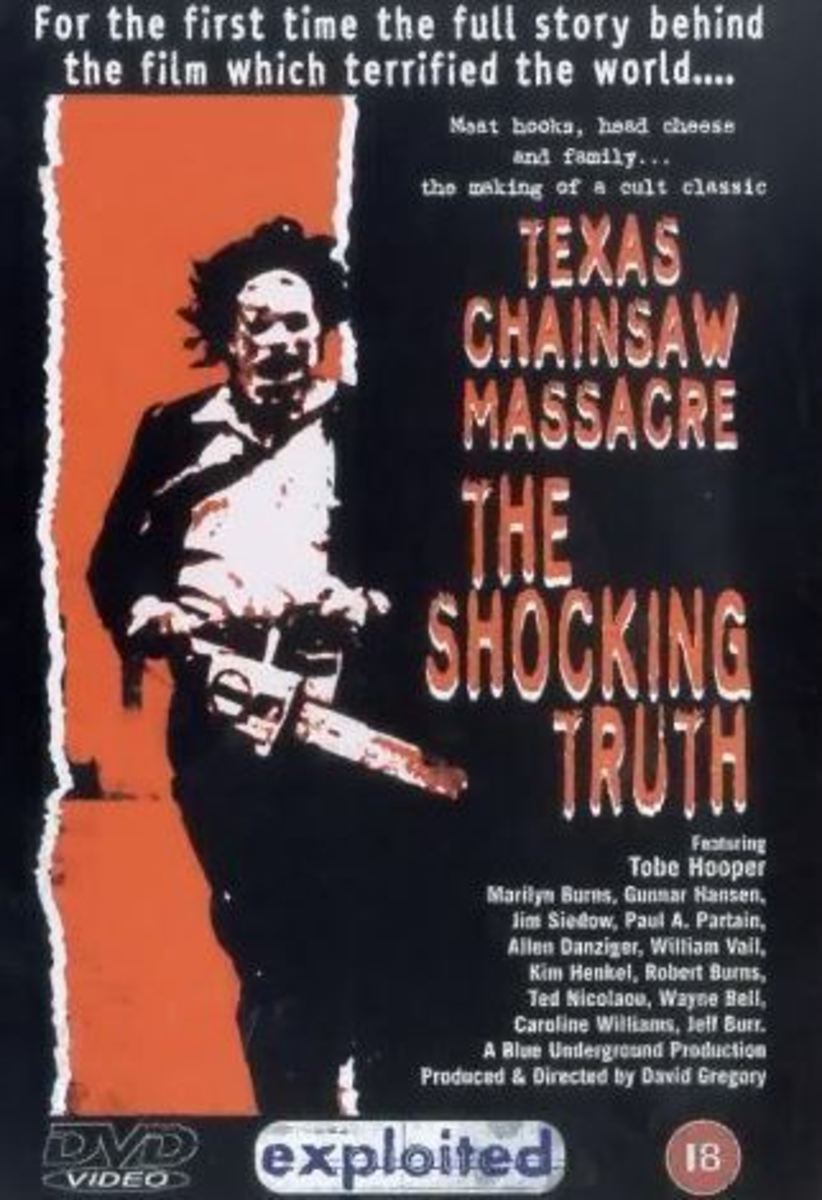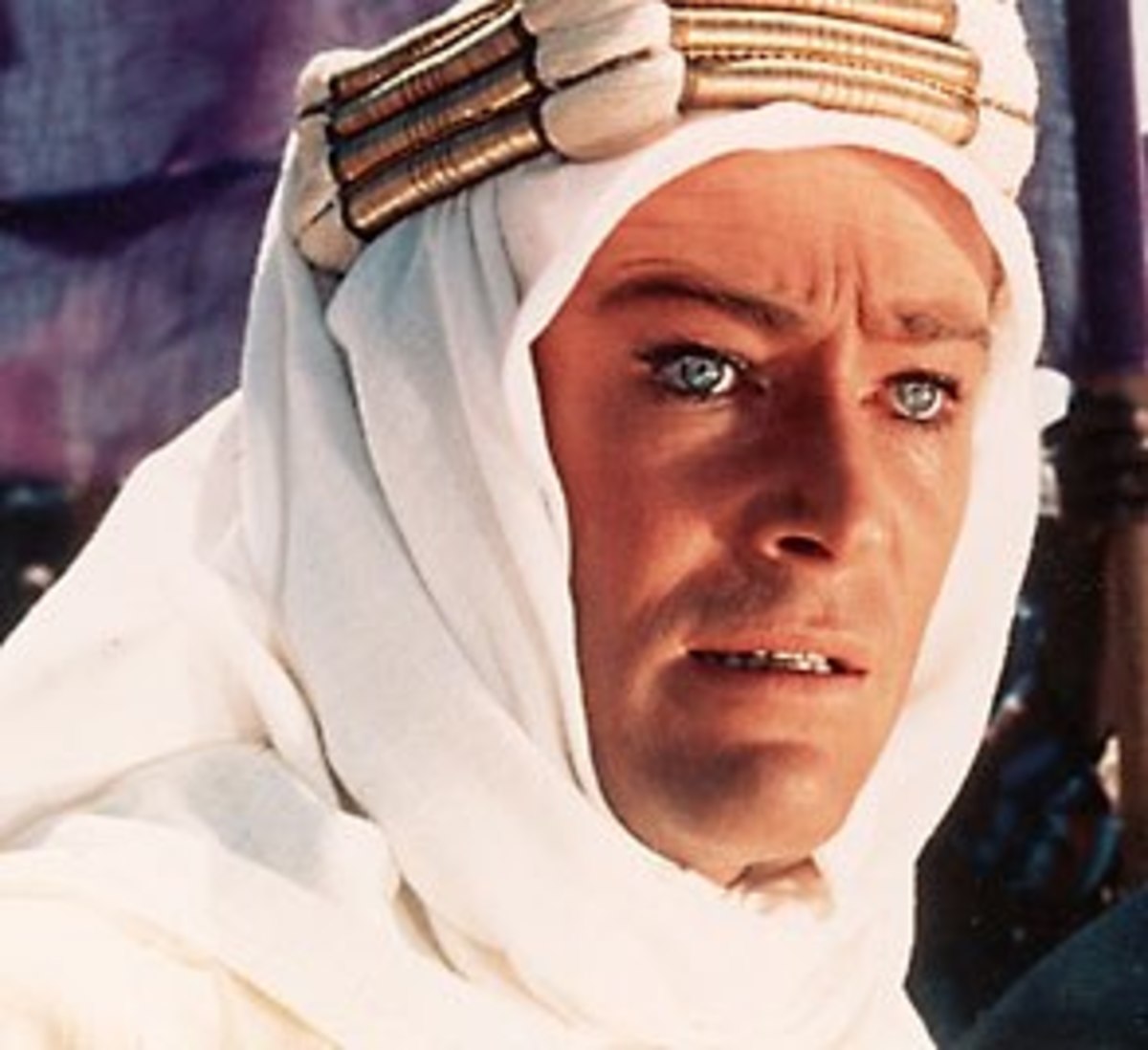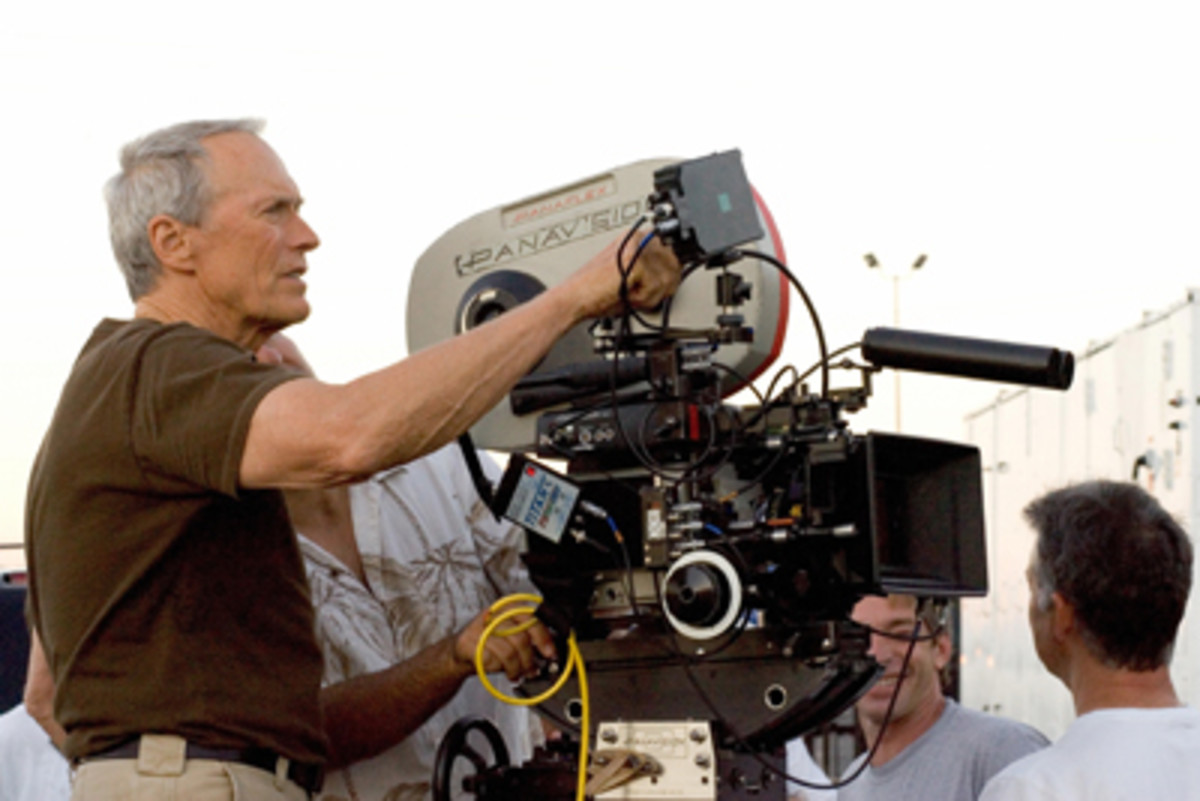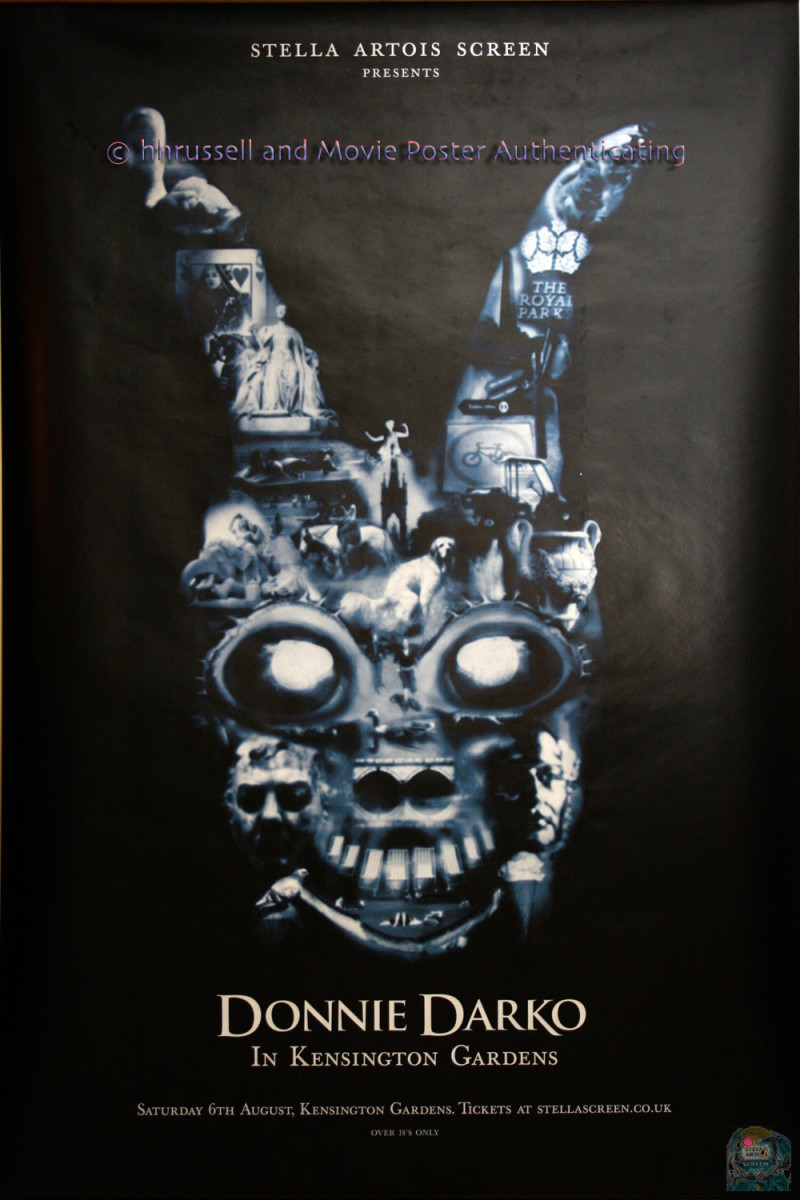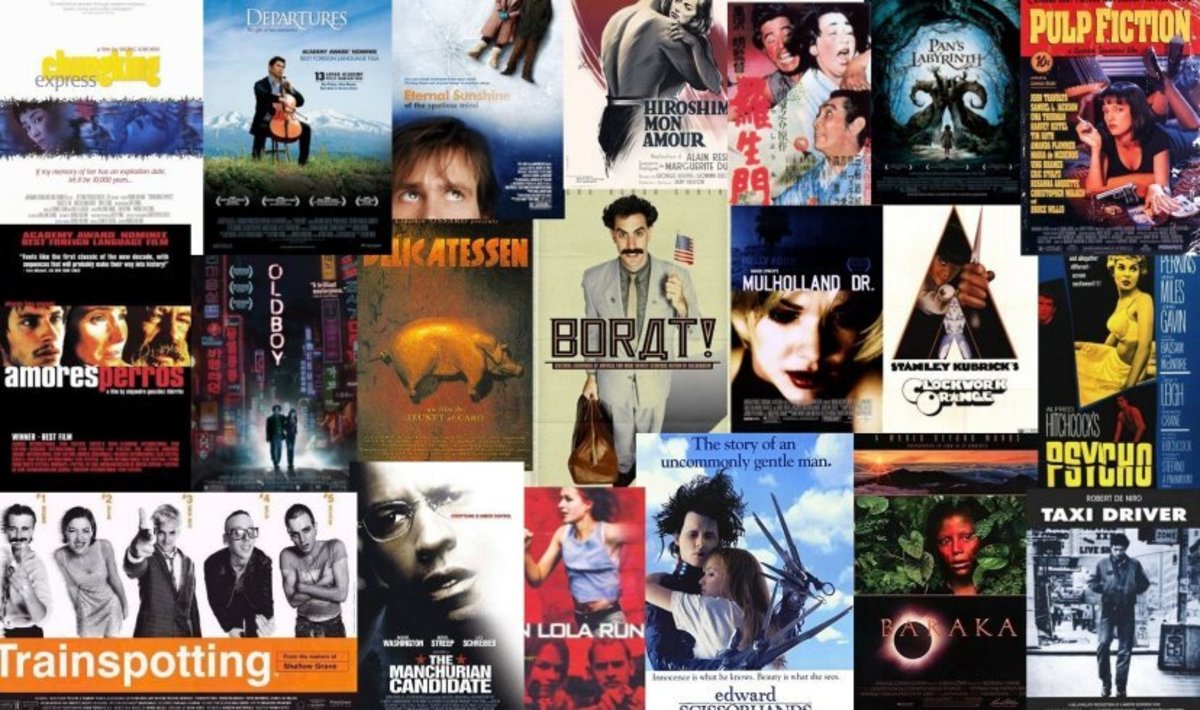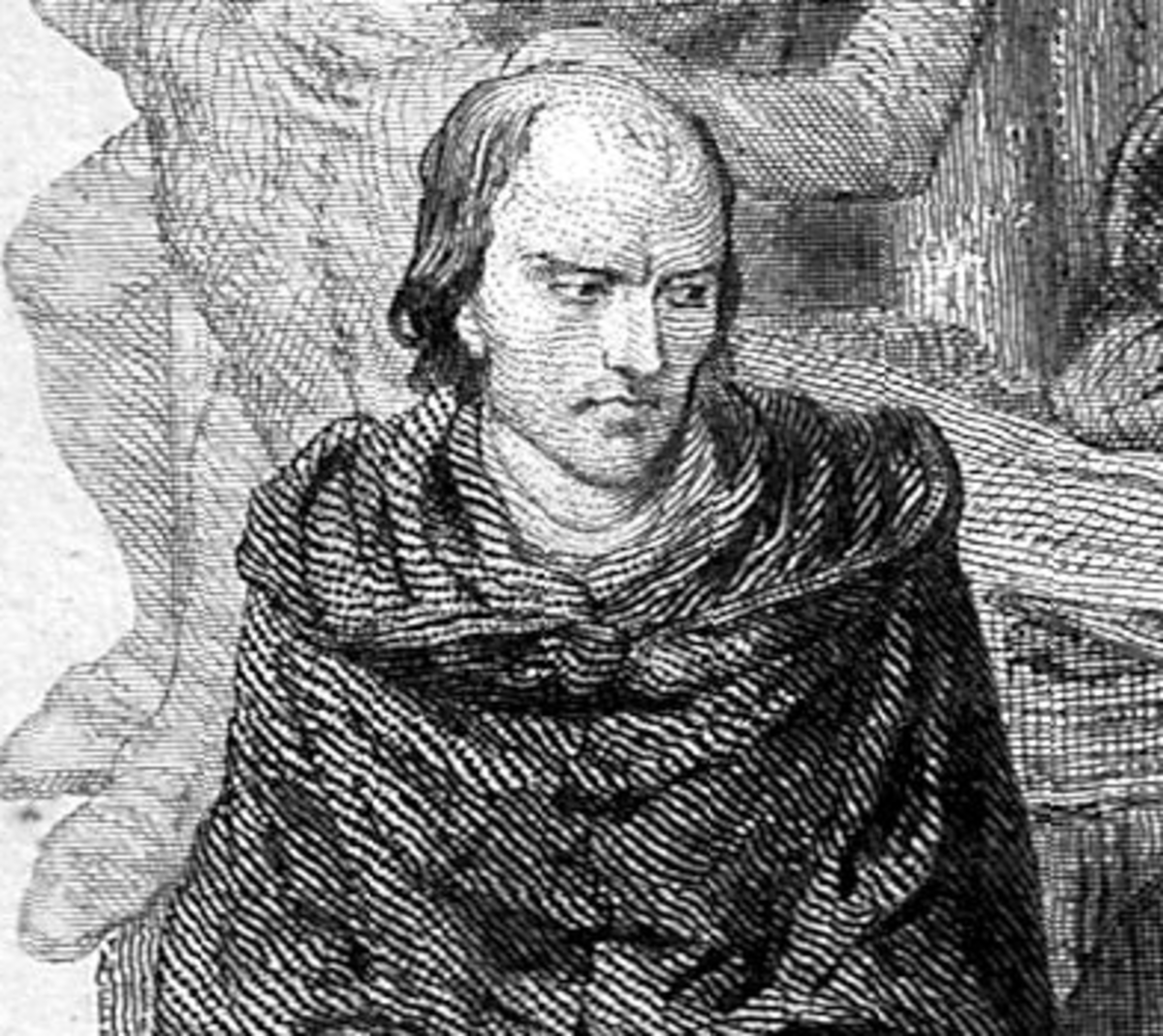David Lean - British Film Director
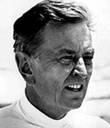
David Lean, Director of Epic Films
Sir David Lean KBE (25 March 1908 - 16 April 1991) was an English film director and producer, best remembered for big-screen epics such as Brief Encounter, Lawrence of Arabia, The Bridge on the River Kwai, Doctor Zhivago and A Passage to India among many others.
Widely acclaimed and winning the praise of directors such as Steven Spielberg, Martin Scorsese, Stanley Kubrick, and George Lucas, Lean was voted 9th greatest film director of all time in the BFI "Directors Top Directors" poll 2002.
What made him such a great film director was his skill at film editing as well as his complete understanding for the bigger picture generally, including the importance of good theme music. The combined fine detail within all of these brought his epics to life!
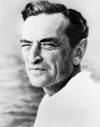
His Early Life
Started as an enthusiastic film editor
He was born in Croydon, Greater London, to Francis William le Blount Lean and the former Helena Tangye. His parents were Quakers and he was a pupil at the Quaker-founded Leighton Park School in Reading.
Lean started at the bottom, as a clapperboard assistant. By 1930 he was working as an editor on newsreels, including Gaumont Pictures and Movietone. His career in feature films began with Freedom of the Seas in 1934 and Escape Me Never in 1935.
He went on to edit Gabriel Pascal's film productions of two George Bernard Shaw plays, Pygmalion (1938) and Major Barbara (1941). He edited Powell & Pressburger's 49th Parallel (1941) and One of Our Aircraft is Missing (1942). After this last film, Lean began his directing career. He had edited more than two dozen features by 1942.
As Tony Sloman wrote in 1999
"As the varied likes of David Lean, Robert Wise, Terence Fisher and Dorothy Arzner have proved, the cutting rooms are easily the finest grounding for film direction."
Personal Life
David Lean was a long-term resident of Limehouse, East London. His home on Narrow Street is still owned by his family. He was married six times, and divorced five - his last wife survived him:
- Isabel Lean (28 June 1930 - 1936) (David's first cousin) - one son Peter
- Kay Walsh (23 November 1940 - 1949)
- Ann Todd (21 May 1949 - 1957)
- Leila Matkar (4 July 1960 - 1978)
- Sandra Hotz (28 October 1981 - 1984)
- Sandra Cooke (15 December 1990 - 16 April 1991)

David Lean, The Film Director
His first work as a director was in partnership with Noel Coward on In Which We Serve (1942), and he went on to adapt several of Coward's plays into successful films. These included This Happy Breed (1944), Blithe Spirit (1945) and Brief Encounter (1945). These were followed by two celebrated Charles Dickens adaptations - Great Expectations (1946) and Oliver Twist (1948), as well as The Sound Barrier (1952) a collaboration with the playwright Terence Rattigan, and what many consider the definitive version of Hobson's Choice (1954), based on the play by Harold Brighouse.
Summertime (1955), marked a new direction in for Lean. Filmed in colour, it was shot entirely on location in Venice. U.S.-financed, the film starred Katharine Hepburn as a middle-aged American woman who has a romance while on holiday in Venice.
In the following years, Lean went on to make the blockbusters for which he is best known: The Bridge on the River Kwai (1957), for which he won an Academy Award, followed by another for Lawrence of Arabia, (1962). Doctor Zhivago (1965) was another major hit. In addition, Lean directed some scenes of The Greatest Story Ever Told (1965) while George Stevens was doing location work in Nevada. Most of his scenes involved Claude Rains and Jose Ferrer, both of whom had previously worked with Lean on Lawrence of Arabia. Following the moderately successful Ryan's Daughter in 1970, he did not direct another film until his last, A Passage to India (1984). He chose to both direct and edit, and the two roles were given precisely equal status in the film's credits. Lean was nominated for Academy Awards in directing, editing, and writing for the film. He was knighted in 1984.
He was in the midst of planning an epic production of Joseph Conrad's Nostromo when he died from cancer, aged 83. Marlon Brando, Paul Scofield, Anthony Quinn, Christopher Lambert, Isabella Rossellini, and Dennis Quaid were among the ensemble cast set to star in the film.
Nostromo would eventually be made as a BBC mini-series. Among other films he attempted to make, but was forced to abandon or pass on to others, are The Wind Cannot Read (1958), The Bounty (1984), Out of Africa (1985), and Empire of the Sun (1987).

Who Influenced Him?
Lean often cited John Ford as one of his favourite directors, and used that director's The Searchers (1956) in particular, as a reference point while shooting his epic films (e.g. Lawrence and Zhivago).
Another major influence was King Vidor's The Big Parade (1926), which he directly referenced in a scene in Zhivago. He was also a major fan of silent directors Charlie Chaplin and Buster Keaton, and cited Rex Ingram as his "idol" on multiple occasions.
"I like making films about characters I'd like to have dinner with." David Lean
Some of David Lean's Films - Once seen, never forgotten!
- In Which We Serve, 1942
- This Happy Breed, 1944
- Blithe Spirit, 1945
- Brief Encounter, 1945
- Great Expectations, 1947
- Oliver Twist, 1948
- The Passionate Friends, 1949
- Madeleine, 1950
- The Sound Barrier, 1952
- Hobson's Choice, 1953
- Summer Madness, 1954
- The Bridge on the River Kwai, 1957
- Lawrence of Arabia, 1962
- Doctor Zhivago, 1965
- Ryan's Daughter, 1970
- Lost & Found, 1978
- A Passage to India, 1984

FILM - Doctor Zhivago
Who could forget this love story?
Walking under the great arch of a hydroelectric dam, a young girl is singled out from among the workers by the commissar, Yevgrav, Zhivago's half-brother and narrator of the story. Yebgrav shows her a book of poems, asking her if they stir any memories. The story then flashes back to Czarist Moscow during the early years of the turbulent Revolution. An orphan boy, Yuri Zhivago, is brought up in the family of Alexander Gromeko, whose daughter Tonya later marries Zhivago after he qualifies as a doctor.
While a student in Moscow, Zhivago crosses paths several times with a beautiful dressmaker's daughter name Lara. On one such occasion, Zhivago is present when Lara shoot Komarovsky, a political opportunist who has seduced her. After the incident, Pasha, a revolutionary idealist, leads Lara away from the party, and later they marry. Yuri, now a doctor, next encounters Lara as a nurse when both of them are working at the front during the Great War. Upon his return to Moscow, Yuri Zhivago is under suspicion because of the poetry he has written. His family's house has been requisitioned. At the urging of his half-brother, Yevgrav, who is a bolshevik police commissar, Yuri takes his family to the Urals where they have a country estate.
Yuri discovers that Lara is living in a nearby town where Pasha, who is now called Strelnikov, is waging war against what remains of the White Army units. Zhivago visits her, and they fall in love. Returning from a visit one day, Zhivago is captured by the Red Army partisans and pressed into service as a doctor.
At the first chance, Zhivago deserts the units and journeys back to Lara's home. Here they spend their last time together. Komarovsky reappears from the past with news that Yuri's family has been deported to France.
Despite Komarovsky's urgings to leave Russia, Zhivago refuses. Eventually he is separated from Lara, who disappears into a labour camp. Years later, Yuri Zhivago dies of a heart attack on a Moscow street, never having found her again. Yebgrav, however, finds the love-child of Zhivago and Lara and tells her the story.
Zhivago Theme Tune
Dr Zhivago Stuff on Amazon
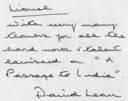
The Story Teller
Bold horizons
As a director, David Lean's first intention was always to tell a story, and it was the story which attracted him to a project, whether it was an ordinary family adapting to postwar life, a provincial love affair, the quest for supersonic flight, a novel by Dickens, or the adventures of a university don in the deserts of Arabia.
Few directors were as able as Lean to convey the spirit of place on film, but if it looked effortless, it wasn't. He once said of himself that he envied ...
"people who have flashes of insight and genius in solving picture problems. I have to work out every way to do a scene and then choose one which will serve the story purposes properly and still not be expected by the audience".
Surprising the audience was very important to David Lean and he was very good at it, whether it was Pip rushing straight into Magwitch in the graveyard in Great Expectations, Harold Hobson drunkenly pursuing the moon in a puddle in Hobson's Choice, or Yuri and Lara finding the frozen dacha in Doctor Zhivago, Lean conjured up image after image to amaze, amuse, move or excite the cinemagoer.
David Lean's choice of subject began to move away from the domestic towards the heroic with The Sound Barrier, and away from the studio to the exhilarating freedom of location filming with Summer Madness. The stories, the characters and the scenery got bigger and grander, calling on all of Lean's qualities of leadership, craftsmanship and sheer mastery of his chosen medium. His work as a director earned two Oscars for himself personally, as well as countless other directing awards, and 29 Oscars for his films overall.
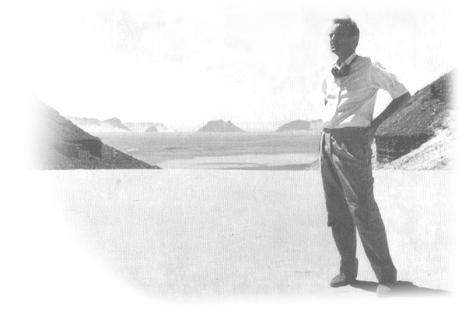
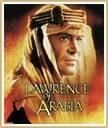
FILM - Lawrence of Arabia
Who can forget that longshot scene in the desert?
Over the years, several attempts to film the story of the extraordinary life of T. E. Lawrence, most notably by Rex Ingram in the 1920s and Alexander Korda in the 1930s, had come to nothing. After the huge success of The Bridge on the River Kwai (1957), which fused adventure story, spectacle and flawed heroics, the potential of Lawrence's story to a filmmaker of David Lean's genius was obvious.
Lean's mastery of composition, of fashioning exactly the right images from the immensity of the desert, its rocks and shadows and hillocks of sand, surpassed anything even he had attempted before. Sometimes he is content for the desert vastness itself to be the point of the scene, as evident in the breathtaking long shot of camels strung out on it like ships on the sea, or the famous sequence of Sherif Ali (Omar Sharif) slowly emerging from the mirage on the far horizon.
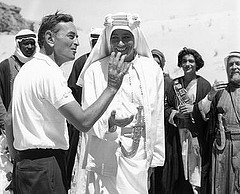
Audacious cuts, like the legendary one from an extinguished match to the rising sun, or sequences like the one where the sun grows larger and larger until it fills the screen during Gasim's desperate desert walk, have lost none of their power after forty years.
There is hardly a frame which is not visually stunning, but Lawrence of Arabia also boasts an exceptional script by Robert Bolt, in his first collaboration with Lean. In the opening credit sequence we know nothing of the man, yet Bolt economically conveys that this is someone who takes risks and finds danger exhilarating. The film promotes the Romantic view of Lawrence which informs his own account of the Arab Revolt in The Seven Pillars of Wisdom. There are startling symmetries, like Lawrence checking his reflection in the golden dagger that goes with his immaculate new white Arab robes, and later seeing his blood-soaked face and clothes in the same dagger, following the massacre of the Turkish column.
Lawrence's identity is questioned throughout the film. Costume designer Phyllis Dalton devised a marvellous way to indicate Lawrence's failing grip on who and what he was. The robes worn by Peter O'Toole become thinner and thinner, until, at the Arab Council in Damascus, they are practically transparent. By the time Lawrence takes his farewell of Arabia, he is reduced first to a reflection in a table top, then a shadow on a curtain, and then to a blurred image behind a car's dirty windscreen.
Janet Moat
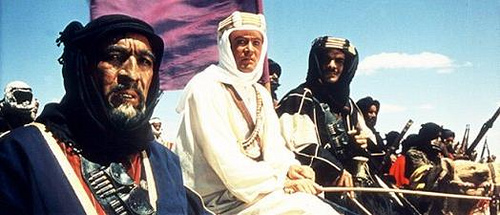
Lawrence Theme Tune
Lawrence of Arabia Stuff on Amazon
Being a director is a lonely job. You are in the midst of a crowd, but you are on your own.

FILM - The Bridge on the River Kwai
Based loosely on the true story of the construction of the Bangkok-Rangoon railway, A Bridge on the River Kwai portrays British soldiers held in a Japanese prisoner of war camp in Burma during 1943. They are ordered to build a bridge across the River Kwai by camp commander Colonel Saito (Sessue Hayakawa), Saito insists that newly arrived British colonel Nicholson (Alec Guinness) order his men to build a bridge over the River Kwai, which will be used to transport Japanese munitions. Nicholson refuses, despite all the various "persuasive" devices at Saito's disposal a psychological battle of wills ensues between Nicholson and Saito. Finally, Nicholson agrees, not so much to co-operate with his captor as to provide a morale-boosting project for the military engineers under his command. The colonel will prove that, by building a better bridge than Saito's men could ever accomplish, the British soldier is a superior being even when under the thumb of the enemy. As the bridge goes up, Nicholson becomes obsessed with completing it to perfection, evidently losing all sight of the fact that it will be used to benefit the Japanese.
Meanwhile, American POW Shears (William Holden) makes a successful escape from the camp. Once on the outside, it is revealed that Shears is not who he claims to be -- that he is actually an enlisted man pretending to be an American officer, ostensibly to ensure better treatment from the Japanese, and later again from the British. British Major Warden (Jack Hawkins) sees through Shears' pose but offers him an option to court martial: Shears must lead a group of British soldiers back to the POW camp to destroy Nicholson's bridge. Upon his return, Shears realises that Nicholson's mania to complete his project has driven him mad. Film buffs still argue over whether or not Nicholson's final, desperate action in Bridge on the River Kwai was accidental or intentional. Whatever the case, Major Clipton succinctly sums up the result of this action by murmuring "Madness....madness."
Filmed in Ceylon, Bridge won seven Academy Awards including best picture, best director (David Lean), best actor (Alec Guinness), best cinematography (Jack Hildyard), best editing (Peter Taylor), best scoring (Malcolm Arnold, who used the famous WWI whistling tune "Colonel Bogey March" which he never wrote), and best screenplay (by Carl Foreman and Michael Wilson, based on Pierre Boulle's novel). The writers were blacklisted, so Boulle, who spoke no English - was credited with the script.
Kwai's 'Colonel Bogey's March'
Kwai Stuff on Amazon
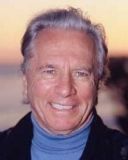
Maurice Jarre - Musical Composer
Epic Films Demanded Epic Themes Tunes
In most David Lean films the musical score has been so hauntingly beautiful and memorable, that one came away from the film humming or whistling it. This quality matched with the wonderful and meticulous film editing by Lean helped produce these amazing epics.
In 1961 Maurice Jarre hit the big time when he was asked to write music for Lawrence of Arabia. Initially, he was meant to be one of three composers working on the behemoth of a film, but Jarre ended up scoring the entire movie himself and thus launching his career as a high profile film composer.
Some of his awards on David Lean films are:
Academy awards:
- A Passage To India
- Doctor Zhivago
- Lawrence of Arabia
- A Passage To India
- Doctor Zhivago
- Doctor Zhivago
"The visual was the essential. David constructs purely in terms of images, using the material the way a composer might use a theme." Michael Powell
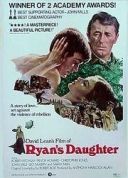
FILM - Ryan's Daughter
Set in Ireland
David Lean expands Robert Bolt's basic love story into an epic drama. Set during the First World War in Kerry, Ireland, young Rosy Ryan (Sarah Miles), is the daughter of Irish publican Tom Ryan (Leo McKern). She later marries passionless old schoolmaster Charles Shaughnessy (Robert Mitchum). Rosy becomes attracted to handsome Major Randolph Doryan (Christopher Jones), a British officer stationed in the town, Rosy and Doryan embark upon a passionate affair of forbidden love. When town half-wit Michael (John Mills) innocently discloses evidence of Rosy's transgression, the town locals begin gossiping. Shaughnessy chooses to ignore the scandal, assuming that Rosy will come to her senses and finish the affair. Later, Rosy's father informs on a group of IRA revolutionaries waiting for an arms shipment, hoping to keep the peace in his village. The locals wrongly assume that Rosy, still endeared to Doryan, is the informer, and exact revenge upon Rosy and her father. Realising that his very presence has caused humiliation for Rosy, Doryan commits suicide. Rosy and Shaughnessy leave the town in an attempt to try to re-build their lives.
In 1970 when Lean made Ryan's Daughter, audiences were unenthusiastic about the film, and many critics were openly hostile towards it. Lean's deliberately overblown style - representing the romantic viewpoint of its heroine, Rosy - was misunderstood and condemned as grandiose and extravagant.
Disappointed and hurt by the reception of Ryan's Daughter - and rich enough from the profits of Dr Zhivago not to have to work again - Lean didn't make another feature film for fourteen years, though during that time he fought hard to make a two-part epic telling the true story of the mutiny on the Bounty.
Ryan's Daughter Stuff on Amazon
What Is Your Favourite David Lean Film?
Which Of These Epic Titles is Your #1 Choice?
A Couple of Thoughts!
"He thought about film as a Jesuit thinks about his vocation." Anthony Havelock-Allan
"Technically, nobody knew better how a film should be shot to make it cuttable... and cuttable well, than David". Anthony Havelock-Allan


![Doctor Zhivago (Two-Disc Special Edition) [DVD]](https://m.media-amazon.com/images/I/512L53dMS8L._SL160_.jpg)



![The True Story of the Bridge on the River Kwai (History Channel) [DVD]](https://m.media-amazon.com/images/I/511711KXMJL._SL160_.jpg)
![The Bridge on the River Kwai (Collector's Edition) [DVD]](https://m.media-amazon.com/images/I/51cL5UPCf7L._SL160_.jpg)

![Ryan's Daughter [VHS]](https://m.media-amazon.com/images/I/51NZDP0RRKL._SL500_.jpg)


